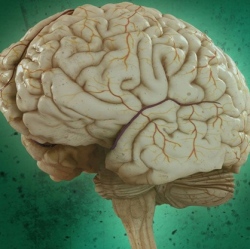
Researchers have “fingerprinted” the matter of the brain using a new MRI method, mapping the brain’s connections at a detailed level. They confirmed that connections in the brain are unique to each individual person and the connections were able to identify a person with nearly 100% accuracy.
The new method could provide biomarkers to help researchers determine how factors such as disease, the environment, genetic and social factors, and different experiences impact the brain and change over time.
“This means that many of your life experiences are somehow reflected in the connectivity of your brain,” said Timothy Verstynen, an assistant professor of psychology at Carnegie Mellon University and senior author of the study, published in open-access PLOS Computational Biology.
For the study, the researchers used diffusion MRI to measure the local connectome of 699 brains from five data sets. The local connectome is the point-by-point connections along all of the white matter pathways in the brain, as opposed to the connections between brain regions. To create a fingerprint for each person, they used the diffusion MRI data to calculate the distribution of water diffusion along the cerebral white matter’s fibers.*
The measurements revealed the local connectome is highly unique to an individual and can be used as a personal biomarker for human identity. To test the uniqueness, the team ran more than 17,000 identification tests. With nearly 100 percent accuracy, they were able to tell whether two local connectomes, or brain “fingerprints,” came from the same person or not.
Curiously, they discovered that identical twins only share about 12 percent of structural connectivity patterns and the brain’s unique local connectome is sculpted over time, changing at an average rate of 13 percent every 100 days.
